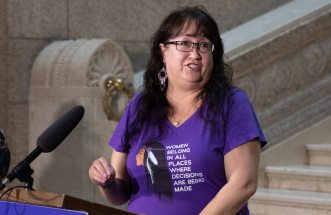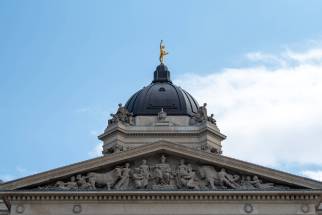Province’s neglect of home care continues
Read this article for free:
or
Already have an account? Log in here »
To continue reading, please subscribe:
Monthly Digital Subscription
$0 for the first 4 weeks*
- Enjoy unlimited reading on winnipegfreepress.com
- Read the E-Edition, our digital replica newspaper
- Access News Break, our award-winning app
- Play interactive puzzles
*No charge for 4 weeks then price increases to the regular rate of $19.00 plus GST every four weeks. Offer available to new and qualified returning subscribers only. Cancel any time.
Monthly Digital Subscription
$4.75/week*
- Enjoy unlimited reading on winnipegfreepress.com
- Read the E-Edition, our digital replica newspaper
- Access News Break, our award-winning app
- Play interactive puzzles
*Billed as $19 plus GST every four weeks. Cancel any time.
To continue reading, please subscribe:
Add Free Press access to your Brandon Sun subscription for only an additional
$1 for the first 4 weeks*
*Your next subscription payment will increase by $1.00 and you will be charged $16.99 plus GST for four weeks. After four weeks, your payment will increase to $23.99 plus GST every four weeks.
Read unlimited articles for free today:
or
Already have an account? Log in here »
Hey there, time traveller!
This article was published 30/05/2022 (1287 days ago), so information in it may no longer be current.
Finance Minister Cameron Friesen, in his April 6 budget, responded to the widespread feeling that Manitoba’s Progressive Conservative government has provided less health care service to Manitobans when the public actually needed more. He increased spending in the most scandalously neglected parts of the health-care system, but did not give home-care service the additional support it needs.
The government came under fire during the COVID-19 pandemic on account of the October, 2020, outbreak at the Maples Personal Care Home, which infected 74 staff and 157 residents, of whom 56 died. The government found $32 million in this year’s budget for measures to improve personal care home service.
Critics had also complained about the shortage of intensive-care service. Manitoba shipped COVID-19 patients to other provinces to receive intensive care they needed that was not available here. The budget provided $9 million for expansion of intensive care units.
In the same way, the government found new money for alleviating surgical backlogs, expanding the emergency department at St. Boniface Hospital, developing a mental-health strategy and building or expanding hospitals in rural Manitoba.
Home-care service, however, was left to struggle on as a neglected branch of Manitoba health care.
Home care is a precious service that, for minimal expense, gives patients the few hours of weekly care they need, in addition to the care provided by their families, in order to stay in their own homes. Regional health authorities hire workers and assign them to help patients who can be discharged from hospital as long as they receive a small amount of regular professional attention.
Home-care service, however, was left to struggle on as a neglected branch of Manitoba health care.
Plenty of frail people, or those with chronic ailments, would benefit from home-care service that would allow them to live safely at home. The dirty secret of Manitoba home care, however, is that you usually have to suffer a disaster requiring hospital admission before you become a candidate for home care.
The pay is so poor and the work so difficult that the service is unable to attract and keep the workers it needs to serve its clients. In these conditions, home-care administrators have no possibility of going out looking for more people who need their services: they can barely handle the demands for service they already face to serve discharged hospital patients.
The fiscal starvation of home care is a continuing scandal of the health-care system, but it does not generate political heat in the way the Maples Personal Care Home catastrophe and the inadequacy of intensive-care services did in pandemic conditions. Manitoba may need a wiser government than the one now in power to apply the money where it will do the most good, and not just where the political heat is most intense.
Home-care workers have to transport themselves to houses and apartments where they may encounter badly behaved pets or unhelpful family members. They have to visit districts where they might feel unsafe after dark. They have to provide service with one eye on the clock to be sure they get to all their appointments on time.
As long as the pay falls short of the difficulties of the job, home care will remain understaffed and hospitals will continue to receive patients who could have been cared for better and more cheaply in their own homes. A government trying to spend public funds wisely should recognize that expansion of home care will be a great way to keep people safe and healthy at home and keep them out of hospital.








